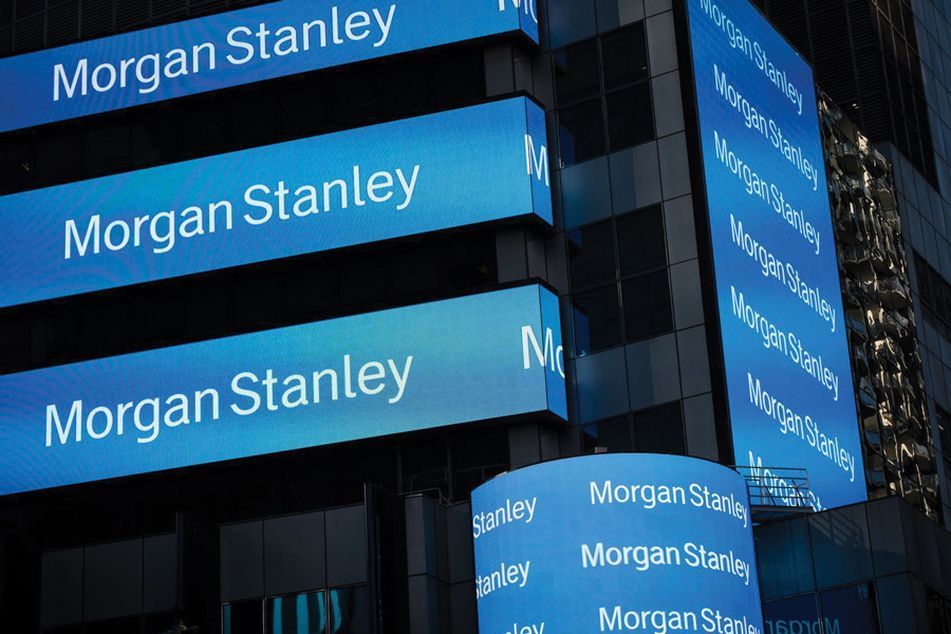‘The Morgan Stanley fade’: US probe dredges up years of animus

Competitors, who couldn’t figure out how Morgan Stanley was bidding for block trades at such tight discounts, are now swapping 'I told you so’s.'
As Morgan Stanley was elbowing its way to the top spot in Wall Street’s ruthlessly competitive business of helping investors sell blocks of stock several years ago, rivals at Credit Suisse Group AG added a slide to their pitch deck. The message, according to people who saw it: Don’t trust Morgan Stanley.
Was there a problem only at Morgan Stanley?
Executives at Blackstone Inc., Carlyle Group Inc. and KKR & Co. have separately grown frustrated in recent years with the notion that many banks — not necessarily Morgan Stanley — may flag impending deals to market participants who then sell the shares or bet against them, driving down prices. Some buyout firms began exploring ways to head off potential declines, people with knowledge of their situations said.
Yet now, all across Wall Street the knives are out for Morgan Stanley. Since word emerged last month that the equities powerhouse is being examined as part of U.S. probes into whether banks tipped off hedge funds to stock sales big enough to move markets, the industry has been buzzing about the “Morgan Stanley fade.”
Competitors, who couldn’t figure out how Morgan Stanley was bidding for block trades at such tight discounts, are now swapping “I told you so’s.” Authorities examining Morgan Stanley’s business haven’t accused it of wrongdoing.
Such jealousy and tensions are understandable: The bank has dominated the often-lucrative business since 2020, when it surpassed Goldman Sachs Group Inc. in handling blocks of U.S. stocks, according to data on registered block trades compiled by Dealogic.
Morgan Stanley acknowledged in a regulatory filing last month that U.S. regulators and prosecutors are investigating “various aspects” of its block-trading business and that it’s been responding to their requests for information. A spokesperson for the bank declined to comment for this article, as did representatives for Credit Suisse, Blackstone, Carlyle and KKR.
MINIMIZING FADE
Private equity firms have developed a number of strategies to try to minimize any fade.
KKR, for example, seeks to partner with one bank early in the sale process, rather than auction the business to a number of banks and increase the number of people aware of an imminent deal, according to people with knowledge of the matter. The goal of that approach is to avoid surprise movements in a stock that can potentially occur if one of the banks bidding for business engages in misbehavior, and to facilitate better post-block trading in a stock.
As a result, KKR has reduced the frequency of its interactions with banks including, among others, Morgan Stanley, the people said. Still, KKR does some business with the New York-based bank, most recently tapping it to handle a registered block of Coty Inc. stock in November.
One longtime private equity executive recalled how his anger at Morgan Stanley grew over years every time prices slipped before trades were executed. But he never told the bank because of its clout — worried that it would hold it against him or raise the issue directly with his firm’s top brass.
The executive left the bank out of deals. Later, he said, he held his tongue as Morgan Stanley’s bankers called and expressed their disappointment.
ZOOMINFO SALE
Some market participants point to a particularly messy block trade on Monday Aug. 9, when a group of investors tapped Morgan Stanley to unload shares of ZoomInfo Technologies Inc. The group had selected Morgan Stanley for another ZoomInfo trade days earlier with satisfactory results.
The Friday before the second sale, the stock sank 3.1%, the third-worst performance in the Dow Jones Internet Service Index. Then early on Monday morning, the shares tumbled another 3.2% before the offering was announced.

Banks are supposed to handle block trades discreetly so that prices don’t fall. The reality, according to market participants, is that declines can happen, potentially because of the way banks track interest among prospective buyers.
Some investors hold blocks of stock with lockup periods that are publicly disclosed. Banks and hedge funds keep track of when those restrictions lift. Before getting a mandate to sell a block, bankers may gauge demand by sending out lists of shares to prospective buyers, such as hedge funds and family offices and following up with calls. If they express interest, banks flag that to known stakeholders and can use any insight provided from buy-side firms about what discount they should bid.
But savvy hedge funds might use those signals to prepare for potential block sales. Some of them may sell or short the stocks, betting a deluge of shares is about to hit the market, driving the price into a slump known as an overhang.
The Securities and Exchange Commission opened its block-trading probe in 2018 with the Justice Department later joining. People with knowledge of the inquiry said the investigation ramped up after the collapse of Archegos Capital Management last March. The debacle sent banks racing to unwind the firm’s portfolio, with prices cratering as they sold blocks of stock.
On March 24, for example, a stock that Archegos owned through swaps, Discovery Inc., tumbled almost 14% to $61.94 before a block priced at $54.54 after markets closed. The phenomenon repeated before an additional sale handled by Morgan Stanley the next day. The stock dropped 7.2% from its intraday high to close at $57.75. Morgan Stanley later offered a block at $40, causing the stock to plunge even further when markets reopened.
No bank suffered more during those price drops than Credit Suisse, which fell behind rivals in unloading stock and racked up more than $5 billion in losses. The firm has since made a presentation to the U.S. Attorney’s Office for the Southern District of New York, flagging potential issues with Archegos’s collapse, people with knowledge of the matter have said. Credit Suisse has declined to comment on whether such talks occurred.
Sellers of large chunks of stock continued to turn to Morgan Stanley, making it the top block-trading firm in the country for a second year.
On Nov. 29, Morgan Stanley was tapped to sell roughly 555,000 shares of Iqvia Holdings Inc. for Bain Capital. Around 2 p.m., the stock started selling off from an intraday high, shedding about 1.5% from that peak to close at $266.69. Morgan Stanley then formally offered shares of the stock at $263. A representative for Bain declined to comment.
Morgan Stanley placed Pawan Passi, one of its top executives overseeing block trades in New York, on administrative leave in November. Last week, the bank named Arnaud Blanchard to replace him as head of Americas equity syndicate. It’s not clear what prompted Passi’s leave, and there is no indication it was connected to any deals at the time.
But unexplained stock declines ahead of blocks led by Morgan Stanley occurred long before he assumed the role years ago, according to people with knowledge of the matter. Fades were also seen under his predecessor, Evan Damast, who is now global head of equity and fixed-income syndicate, the people said.
Damast, like Passi, would make calls to buy-side clients seeking to learn their interest in hypothetical blocks, one of the people said. Neither of the executives, nor any other firms have been accused of wrongdoing by authorities.
Learn more about reprints and licensing for this article.








